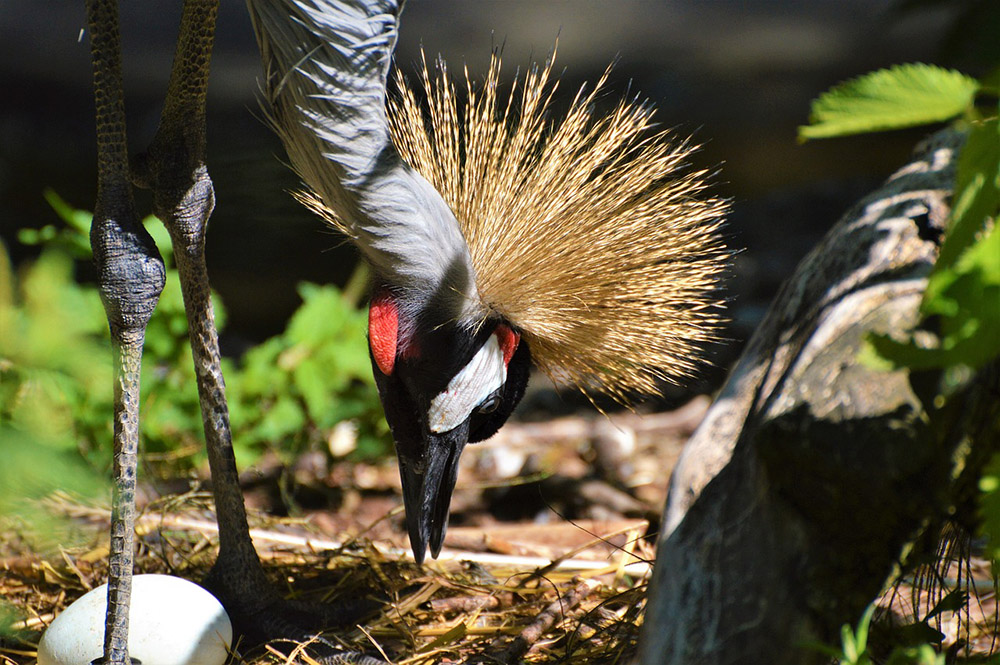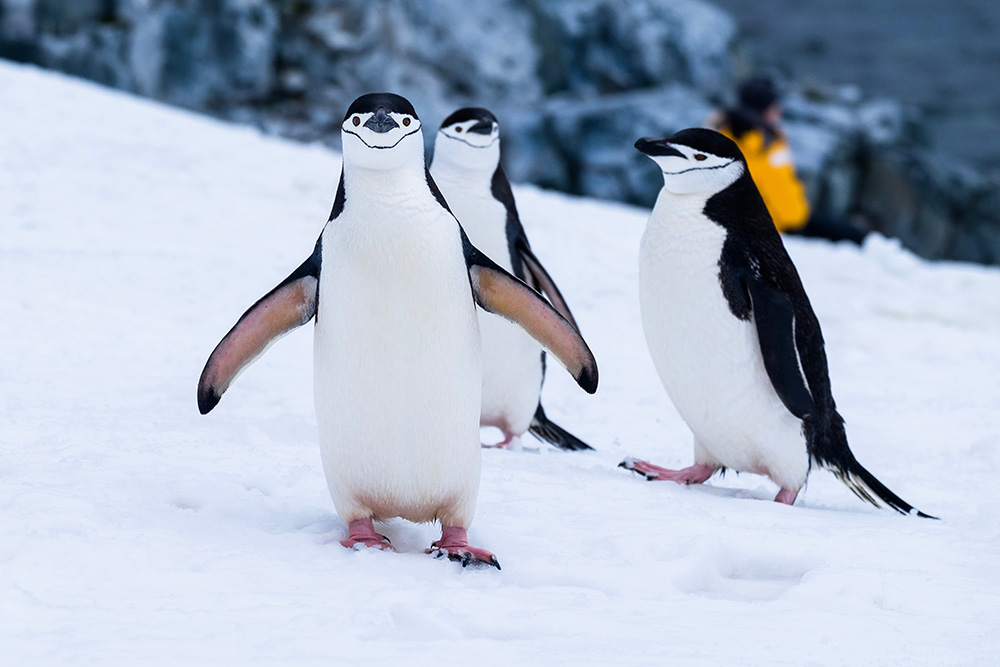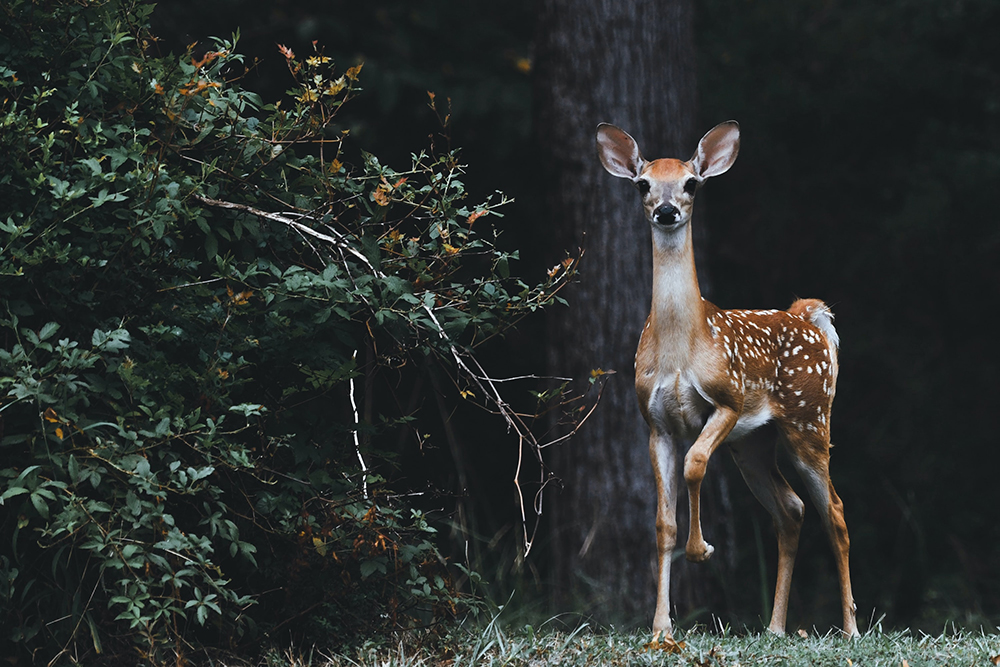The new YouTube channel “GW Animal Law Program” went online at the end of November 2023. It collects lectures and recordings on animal law and ethics. Some of them are from the online event “Artificial Intelligence & Animals”, which took place on 16 September 2023. The speakers were Prof. Dr. Oliver Bendel (FHNW University of Applied Sciences Northwestern Switzerland), Yip Fai Tse (University Center for Human Values, Center for Information Technology Policy, Princeton University), and Sam Tucker (CEO VegCatalyst, AI-Powered Marketing, Melbourne). Other videos include “Tokitae, Reflections on a Life: Evolving Science & the Need for Better Laws” by Kathy Hessler, “Alternative Pathways for Challenging Corporate Humanewashing” by Brooke Dekolf, and “World Aquatic Animal Day 2023: Alternatives to the Use of Aquatic Animals” by Amy P. Wilson. In his talk, Oliver Bendel presents the basics and prototypes of animal-computer interaction and animal-machine interaction, including his own projects in the field of machine ethics. The YouTube channel can be accessed at www.youtube.com/@GWAnimalLawProgram/featured.
Artificial Intelligence & Animals
The online event “Artificial Intelligence & Animals” will take place on 16 September 2023. “AI experts and attorneys will discuss the intersection of AI and animals in this UIA Animal Law Commission and GW Animal Law webinar” (Website Eventbrite) Speakers are Prof. Dr. Oliver Bendel (FHNW University of Applied Sciences and Arts Northwestern Switzerland), Yip Fai Tse (University Center for Human Values, Center for Information Technology Policy, Princeton University), and Sam Tucker (CEO VegCatalyst, AI-Powered Marketing, Melbourne). Panelists are Ian McDougall (Executive Vice President and General Counsel, LexisNexis London), Jamie McLaughlin (Animal Law Commission Vice President, UIA), and Joan Schaffner (Associate Professor of Law, George Washington University). Oliver Bendel “has been thinking on animal ethics since the 1980s and on information and machine ethics since the 1990s”. “Since 2012, he has been systematically researching machine ethics, combining it with animal ethics and animal welfare. With his changing teams, he develops animal-friendly robots and AI systems.” (Website Eventbrite)
ACI 2023 in North Carolina
The Tenth International Conference on Animal-Computer Interaction will be held December 4-8, 2023, in Raleigh, North Carolina, hosted by North Carolina State University. “ACI is the leading International Conference on Animal-Computer Interaction. It is a highly multidisciplinary event drawing researchers and practitioners from diverse backgrounds to share and discuss work and topics related to the research and design of computing-enabled and interactive technology for and with animals.” (Website ACI) The Ninth International Conference on Animal-Computer Interaction was held in Newcastle upon Tyne at the end of 2022. Also this year the organizers are interested in a variety of topics in animal-computer interaction and animal-machine interaction, as the call for papers (CfP) reveals: “Submissions might address topics such as: the role of technology in shaping human-animal relationships; studies and/or analysis of large-scale technology for animal deployments; considerations on the wider context of technology for animal use; methods and reflections on studying the next generation of technology for animals; or how to conduct ACI research in a world where commercial design and deployment of technology for animals outpaces academic thought.” (Website ACI) The CfP can be accessed at www.aciconf.org/aci2023.
Minding Animals 2024
After an hiatus of six years, Minding Animals will return, with a conference tentatively scheduled to be held 11 – 17 July, 2024. This was announced by the organizers in a message dated December 19, 2022. “Just like the postponed 2021 conference, Minding Animals 5 (MAC5) will be hosted by the Centre for Compassionate Conservation (CfCC) in the Transdisciplinary School at the University of Technology, Sydney (UTS).” (Message from Minding Animals International) The organizers refer to the Minding Animals Bulletin 53 regarding the vision of the conference and the preparation of the authors. “We believe that the greatest threat posed to the planet, to all planetary life, human or nonhuman animal, plant or otherwise, including the current pandemic, is the intersection of animal agriculture and the climate crisis. Hence, the urgency and criticality of climate as the key theme.” (Minding Animals Bulletin 53) Possible subtopics include “The biodiversity crisis and climate change”, “Rewilding and compassionate conservation”, “The animal industrial complex”, “Animals, the circular economy and sustainable food systems”, and “Animals in development and food sovereignty”.
Face Recognition for Bears in the Alps
At the end of the ACI conference, the “Paper Session 6” was held, which was titled “Investigating Human-Animal Relations”. Sarah Webber (University of Melbourne) gave a talk on “Watching Animal-Computer Interaction: Effects on Perceptions of Animal Intellect”. In the experiment, people observed orangutans interacting with computer applications. It was examined how they changed their judgments regarding the animals’ intelligence and behavior. The talk that followed came from Alexandra Morgan (Northumbria University) and was titled “Blind dogs need guides too: towards technological support for blind dog caregiving”. She addressed the needs of blind dogs and showed what gadgets are on the market to assist them. Her team developed an app called “My Blind Dogo” that could help owners of blind dogs. The session ended with a talk on “A Face Recognition System for Bears: Protection for Animals and Humans in the Alps” by Oliver Bendel (University of Applied Sciences and Arts Northwestern Switzerland). He presented an integrated system with cameras, robots, and drones that Ali Yürekkirmaz and he had designed. The ACI took place from 5 to 8 December 2022 in Newcastle upon Tyne. It is the world’s leading conference on animal-computer interaction. More information on the conference via www.aciconf.org/aci2022.
Accepted Papers of ACI’22
The conference program for ACI’22 will be available in the course of November. In the meantime, the website lists the accepted papers in alphabetical order. Among them are the papers “A Face Recognition System for Bears: Protection for Animals and Humans in the Alps” (Oliver Bendel and Ali Yürekkirmaz), “A Framework for Training Animals to Use Touchscreen Devices for Discrimination Tasks” (Jennifer Cunha and Corinne Renguette), “Politicising Animal-Computer Interaction: an Approach to Political Engagement with Animal-Centred Design” (Clara Mancini, Orit Hirsch-Matsioulas, and Daniel Metcalfe), and “TamagoPhone: A framework for augmenting artificial incubators to enable vocal interaction between bird parents and eggs” (Rebecca Kleinberger, Megha Vemuri, Janelle Sands, Harpreet Sareen, Janet M. Baker). ACI2022 will take place 5-8 December 2022, hosted by Northumbria University, Newcastle upon Tyne, UK.
Defining Tomorrow
Animal-computer interaction (ACI) “is a rapidly growing field, which focuses on the interaction between animals and computing-enabled technology and for which the International Conference on Animal-Computer Interaction is the main convention venue” (Website ACI2022). ACI2022 will take place 5-8 December 2022, hosted by Northumbria University, Newcastle upon Tyne, UK. The “Emerging Work” track reflects early stage efforts that either: “1) will be of interest to the ACI community and likely to generate insightful, instructional, and/or spirited discussion, and/or 2) is early enough that it could benefit greatly from community feedback on direction, design, methods, etc.” (Website ACI2022) In this track, the paper “A Face Recognition System for Bears: Protection for Animals and Humans in the Alps” by Oliver Bendel and Ali Yürekkirmaz was accepted. It fits very well with this year’s conference theme, “Defining Tomorrow”. “The theme acknowledges the rapid growth in technology for animals with new products coming onto the market, normalising the use of technology in many human-animal relationships, and asks: where should we go next?” (Website ACI2022)
AI Ethics and Animals
The impact of robotics and artificial intelligence on non-human animals has been researched by Oliver Bendel for several years. He has made it his task to complement the discipline of animal-computer interaction, which was founded by Clara Mancini, with the discipline of animal-machine interaction. His most recent paper is “Passive, Active, and Proactive Systems and Machines for the Protection and Preservation of Animals and Animal Species”, published February 25, 2022, in Frontiers of Animal Science. Also becoming active in this field now is the famous ethicist Peter Singer. Together with his co-author Yip Fai Tse, he published the article “AI ethics: the case for including animals” in July 2022. From the abstract: “The ethics of artificial intelligence, or AI ethics, is a rapidly growing field, and rightly so. While the range of issues and groups of stakeholders concerned by the field of AI ethics is expanding, with speculation about whether it extends even to the machines themselves, there is a group of sentient beings who are also affected by AI, but are rarely mentioned within the field of AI ethics – the nonhuman animals. This paper seeks to explore the kinds of impact AI has on nonhuman animals, the severity of these impacts, and their moral implications. We hope that this paper will facilitate the development of a new field of philosophical and technical research regarding the impacts of AI on animals, namely, the ethics of AI as it affects nonhuman animals.” (Peter Singer and Yip Fai Tse 2022) In the text, the authors write: “Of the hundreds of AI ethics related papers we reviewed in this project, we only found four that concern the impacts of AI on animals, in a general way, and discuss the relevant ethical implications. They are: ‘Towards animal-friendly machines’ by Oliver Bendel, ‘AI Ethics and Value Alignment for Nonhuman Animals’ by Soenke Ziesche, ‘Moral Consideration of Nonhumans in the Ethics of Artificial Intelligence’ by Andrea Owe and Seth Baum and ‘Animals and AI. The role of animals in AI research and application – An overview and ethical evaluation’ by Leonie Bossert and Thilo Hagendorf.” (Peter Singer and Yip Fai Tse 2022) The article will certainly give the young disciplines a further boost.
A Robot Among Penguins
British Filmmaker John Downer has created artificial monkeys, wolves, hippos, turtles, alligators, etc., to observe appropriate wildlife and obtain spectacular images. His well-known robots are very intricately designed and resemble the animals they mimic in almost every detail. It is not necessary to resort to such technically elaborate and artistically demanding means for all species. USA Today reports in a recent article about a robot called ECHO. “ECHO is a remote-controlled ground robot that silently spies on the emperor penguin colony in Atka Bay. The robot is being monitored by the Single Penguin Observation and Tracking observatory. Both the SPOT observatory, which is also remote-operated through a satellite link, and the ECHO robot capture photographs and videos of animal population in the Arctic.” (USA Today, May 6, 2022) ECHO does not resemble a penguin in any way. It is a yellow vehicle with four thick wheels. But as a video shows, the animals seem to have gotten used to it. It comes very close to them without scaring them. Wildlife monitoring using robots is becoming increasingly important, and obviously very different types are being considered.
Machines and Robots for Animal Welfare
On 25 February 2022, the article “Passive, Active, and Proactive Systems and Machines for the Protection and Preservation of Animals and Animal Species” by Oliver Bendel was published in Frontiers in Animal Science. From the abstract: “Digitalization and automation are expanding into many areas, resulting in more widespread use of partially and fully autonomous machines and robots. At the same time, environmental and other crises and disasters are on the rise, the world population is growing, and animals are losing their habitat. Increasingly, machines and robots such as agricultural vehicles, autonomous cars, robotic lawnmowers, or social robots are encountering animals of all kinds. In the process, the latter are injured or killed. Some machines can be designed so that this does not happen. Relevant disciplines and research areas briefly introduced here are machine ethics, social robotics, animal-machine interaction, and animal-computer interaction. In addition, animal welfare is important. Passive and active machines—as they are called in this review—are already appearing and help to observe and protect animals. Proactive machines may play a role in the future. They could use the possibilities of full automation and autonomy to save animals from suffering in agriculture or in the wild. During crises and disasters and in extensive nature reserves, they could observe, care for, and protect animals. The review provides initial considerations on active, passive, and proactive machines and how they can be used in an animal preservation context while bearing in mind recent technical and global developments.” The article is part of the research topic “Animal-Computer Interaction and Beyond: The Benefits of Animal-Centered Research and Design” and can be accessed at www.frontiersin.org/articles/10.3389/fanim.2022.834634/full.









